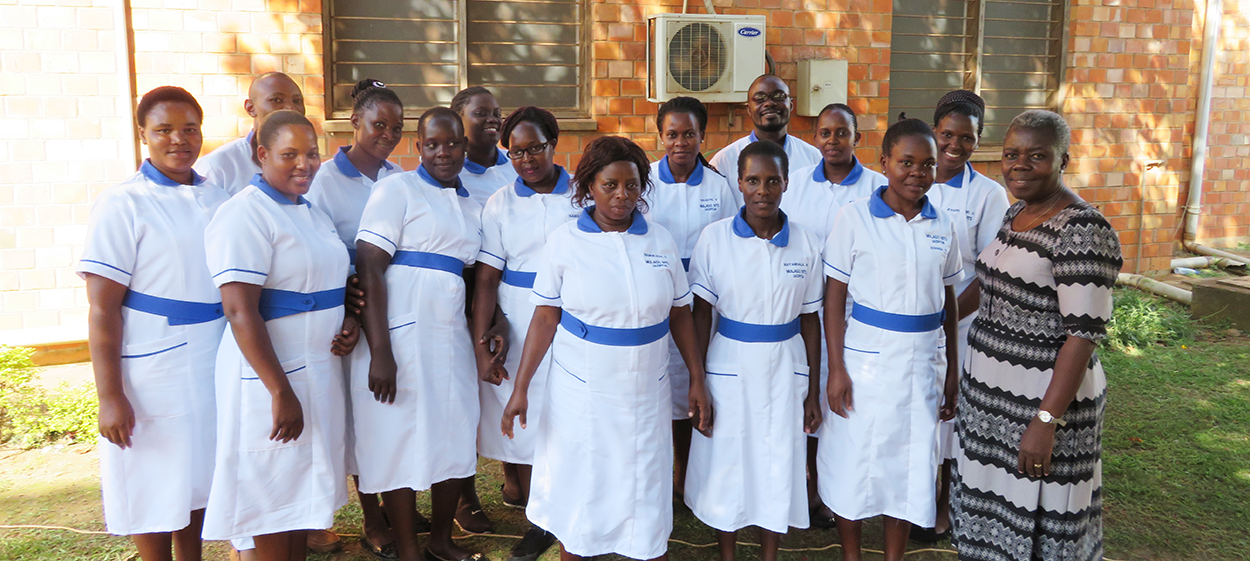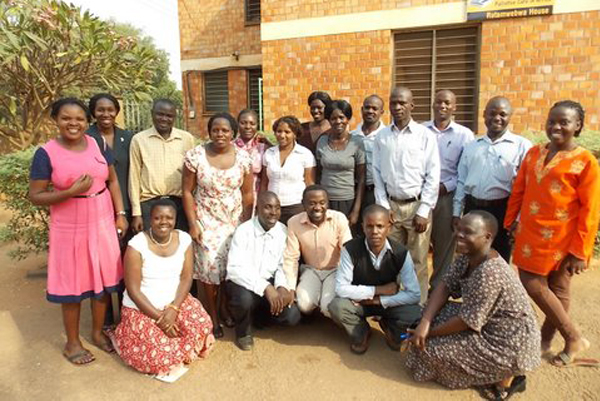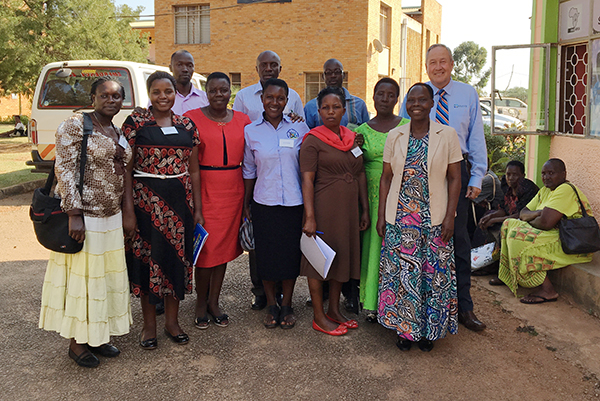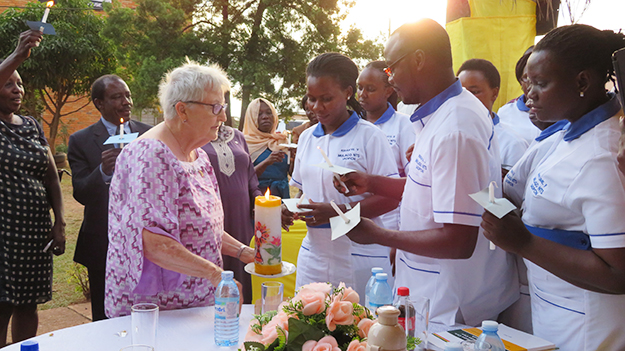Nurses Training
The Importance of Training Nurses

In Uganda, many people – especially those living in rural and hard-to-reach areas – may never encounter a doctor. For them a nurse is often the primary, and sometimes the only, health care provider. CHC and PCAU recognized early in the partnership that training more nurses in palliative care would have the greatest impact on expanding access to care nationwide. Currently, it is estimated that only about 11% of Ugandans who need palliative care are able to access it.
From 2010 to 2017, CHC funded at least 49 scholarships for students to complete a Diploma in Clinical Palliative Care (DCPC) through the Institute of Hospice and Palliative Care in Africa (IHPCA), run by Hospice Africa Uganda (HAU). The DCPC is an intensive, one-year, full-time program. Clinicians trained through this program returned to their home districts to establish and strengthen palliative care units. Of crucial importance, the program trains nurses and clinical officers to prescribe oral liquid morphine, a cornerstone of effective pain and symptom management. After successful completion of the course, graduates are recognized morphine prescribers. Uganda is one of the few countries globally that allows nurses to prescribe morphine, significantly enhancing access to pain relief for patients in need.


Diploma in Clinical Palliative Care students through the years
While the IHPCA has remained an excellent training pathway, PCAU also advocated for the integration of palliative care training within the government education system to ensure long-term sustainability and scale. During 2018, as advocacy efforts intensified, PCAU undertook a one-off Tutors’ Training Course for 18 tutors (including preceptors at placement sites), delivered jointly by the IHPCA and PCAU. In 2019, the Ministry of Education approved the curriculum and launched the Advanced Diploma in Palliative Care Nursing (ADPCN) at Mulago School of Nursing and Midwifery – the oldest and largest public nursing and midwifery training institution in Uganda. With reduced tuition costs, increased class capacity and strong government collaboration, CHC and PCAU are now able to support a greater number of students through scholarships. Over this period, the number of districts offering palliative care services more than doubled. Health care workers completing the DCPC and ADPCN are equipped to provide holistic palliative care to both patients and their families. PCAU continues to support the program (through CHC-funded scholarships) both at HAU and at Mulago School of Nursing and Midwifery. From 2010 to 2025, CHC has funded a total of 150 student scholarships and supported the training of 18 tutors, alongside ongoing technical support as the program grows. All of these efforts contribute to the development of a national palliative care workforce and expanding access to compassionate care across Uganda.


